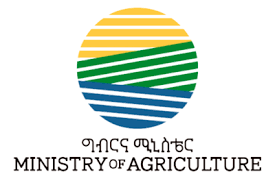The Ministry of Agriculture (MoA) is actively leading the development of a National Agroecology Strategy (NAES) for Ethiopia, a major step toward transforming the country’s food and agricultural systems. This strategic effort is unfolding in parallel with a rising wave of agroecological policy initiatives across Eastern and Southern Africa, where governments are increasingly turning to agroecology as an integrated, climate-resilient, and sustainable solution to food system challenges.

Recent examples include Tanzania, which launched its National Ecological Organic Agriculture Strategy (NEOAS) in November 2023, and Kenya, which introduced its National Agroecology Strategy for Food System Transformation in November 2024, are at the forefront of this movement. Strategies are also underway in Uganda, Zambia, Zimbabwe, and Malawi, where formal recommendations have been made to initiate one. These developments signal a broader continental shift, recognizing agroecology’s potential to deliver climate-resilient, inclusive, and sustainable agricultural transformation aligned with national priorities such as food security, natural resource management, and economic viability.
In this context, Ethiopia’s decision to embark on the development of the NAES is both timely and strategic. The NAES will serve as a national policy framework to guide and scale agroecological approaches, ensuring they are mainstreamed across relevant agricultural and rural development programs.
The development of the strategy is supported by the EU-IFAD Agroecological Transitions for Building Resilient and Inclusive, Agricultural and Food Systems (TRANSITIONS) program through the Private Sector Incentives and Investments (PSii) project that is being implemented by the Alliance of Bioversity International and CIAT, and the Metrics project and the Measuring Agroecology Performance (MAP) initiative managed by the Center for International Forestry Research and World Agroforestry (CIFOR-ICRAF).
It also draws from years of practical national experiences from projects such as the Sustainable Land Management Project (SLMP), Resilient Landscapes and Livelihoods Project (RLLP), and the Green Legacy Initiative, all of which embody agroecological principles and approaches.
A high-level consultative workshop held in Addis Ababa on November 26, 2024, sets the strategy development in Motion. Organized by the MoA, the workshop underscored the critical importance of developing NAES and presented a strategic roadmap for its creation. In his keynote address, H.E. Prof. Eyasu Elias, State Minister of Agriculture, emphasized the urgency of institutionalizing agroecology and highlighted its potential to transform Ethiopia’s agricultural systems to become more resilient, inclusive, and sustainable.
The event convened a wide range of stakeholders, including government officials, researchers, and representatives from institutions actively engaged in agroecology across Ethiopia. Based on workshop recommendations, a multi-institutional technical task force and a core team of experts were formally established to steer the development of the strategy under the leadership of the MoA.
The institutions represented on the taskforce and core team include:
- Ministry of Agriculture (MoA) – with representatives from the NRM, Crop, and Livestock departments
- Alliance of Bioversity International and CIAT (the Alliance)
- Center for International Forestry Research and World Agroforestry (CIFOR-ICRAF)
- Ethiopian Institute of Agricultural Research (EIAR)
- Haramaya University
- The German Agency for International Cooperation (GIZ)
- Ethiopian Sustainable Food Systems and Agroecology Consortium (ESFSAC)

The Alliance and CIFOR-ICRAF have been appointed to serve as deputy chair and the secretariat for the task force, respectively. The core team has been entrusted with ensuring a robust, inclusive, and evidence-based process with the timely and effective development of the NAES, including:
- Drafting the strategy
- Conducting stakeholder consultations
- Ensuring alignment with national development frameworks and global commitments
- Providing specialized technical support
- Supporting the design of a robust monitoring and evaluation (M&E) framework
The development of Ethiopia’s NAES represents a bold and proactive commitment to aligning national agricultural development with agroecological principles that are gaining traction globally and regionally. With momentum building across the African continent, Ethiopia’s initiative positions the country as a forward-thinking leader in agricultural transformation, fostering environmentally sound, socially equitable, and economically viable agri-food systems.
Further consultations, regional validation workshops, and strategy finalization phases are planned as part of the implementation roadmap in the months ahead.
